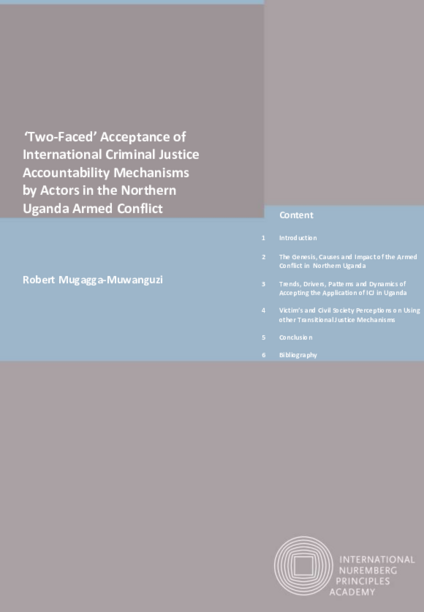‘Two-Faced’ Acceptance of International Criminal Justice Accountability Mechanisms by Actors in the Northern Uganda Armed Conflict

About
Since Uganda gained independence from the British on 9 October 1962, Uganda has been plagued by troubles, violence and conflict, with millions experiencing grave injustices and serious human rights violations. Conflict in Uganda, as in many African states, has its roots in ethnic differences, marginalisation and colonial legacies. At the end of each conflict, the country has had to grapple with how to confront the injustices and violence or, even more importantly, how to address gross human rights violations committed during periods of anarchy amidst the competing needs of establishing a reconciled, unified, democratic and peaceful society. This study sets out to examine the views of different actors (victims, government and civil society) on the application of ICJ mechanisms in ensuring accountability for crimes committed during the conflict in northern Uganda. This research serves to close the gap in our understanding of whether and why people that have experienced what can be categorised as international crimes accept the application of ICJ frameworks and justice mechanisms.
